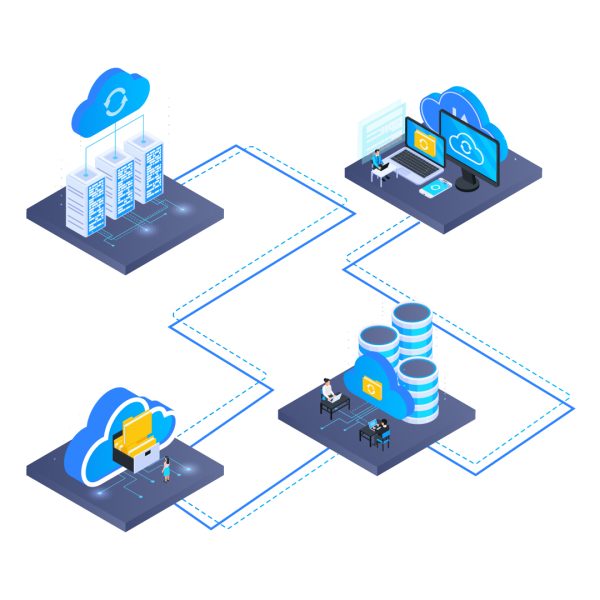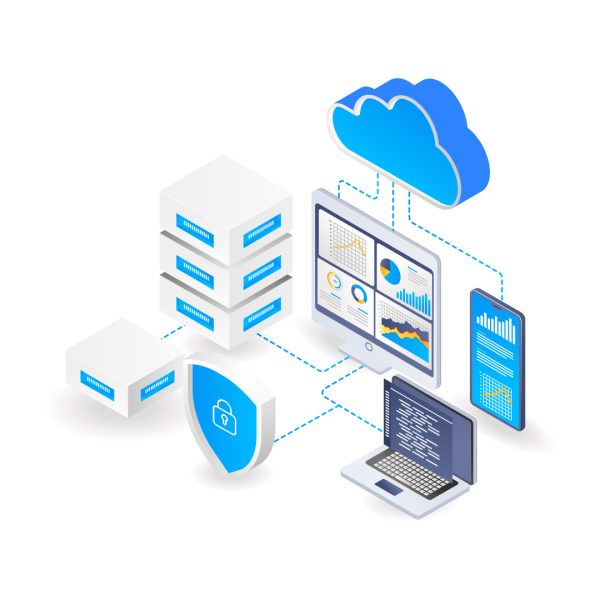Network:
In today’s interconnected world, network technology serves as the backbone of modern communication. It’s the invisible web that links every device, allowing them to exchange data, information, and resources seamlessly. Within the realm of network technology, there are three key types that dominate the modern industry: Logical Networks, Physical Networks, and Software Defined Networks (SDN).
-
Logical Networks: The Foundation of Digital Communication
-
Physical Networks: Bridging the Digital and Physical Realms
-
Software Defined Networks (SDN): The Future of Network Management

Logical Network:
At the core of every network lies the logical networks, an essential infrastructure that enables devices to communicate with each other. In logical networks, information flows through a virtual construct that forms the basis of all interactions. This form of network serves as the digital conduit through which data packets are transmitted, ensuring that devices can communicate effectively.
Physical Network:
While logical networks provide the framework for communication, physical networks bring this virtual world into the tangible realm. A physical network is a structured and organized system that complements the logical network. It necessitates the presence of hardware components such as routers, cables, and various interconnected devices. These physical components work in harmony to facilitate communication by establishing physical connections between devices.
In a physical network, devices are directly linked through cables, and they rely on the predefined logical network to transmit data efficiently. This intricate interplay between the digital and physical worlds forms the backbone of modern connectivity.
Software Defined Networking:
In the ever-evolving landscape of network technology, Software Defined Networking (SDN) has emerged as a game-changer. SDN represents a paradigm shift in network management, offering a range of advanced features that enhance network functionality. Key characteristics of SDN include central management, vendor neutrality, dynamic adaptability, and agility.
SDN leverages Application Programming Interfaces (APIs) to communicate and direct traffic across a network. It provides network administrators with unprecedented control, allowing for the dynamic allocation of resources and rapid response to changing network conditions. This flexibility makes SDN particularly well-suited for modern, fast-paced industries where adaptability is essential.
In the realm of cloud services, Tirzok Cloud is at the forefront of innovation, offering Software Defined Networking as the default networking solution for its users. By harnessing the power of SDN, Tirzok Cloud enhances the connectivity and capabilities of its Virtual Machines (VMs) in the following ways:
- Isolated Networks: Each user account on Tirzok Cloud comes with its own isolated network. This isolation ensures that the network resources are exclusive to the user, enhancing security and performance..
- Custom Private Networks: Users can create multiple private networks tailored to their specific needs. VMs can be deployed within these private networks, ensuring complete isolation from other networks. This is particularly useful for maintaining separate environments, such as development and production.
- User-Spawned Routers: Tirzok Cloud empowers users to spawn routers, which serve as gateways, directing traffic across multiple networks. This flexibility allows for efficient traffic management and network segmentation.
- VPN Connectivity: To bolster security, Tirzok Cloud enables users to establish Virtual Private Network (VPN) connections, granting secure access to VMs within private networks. This ensures data remains protected even in transit.
- Public IPs for Accessibility: Public IPs can be paired with the private IPs assigned to VMs, making them publicly accessible over the internet. This feature is crucial for applications and services that require external access.
- High Availability: Tirzok Cloud's SDN is designed for maximum availability, ensuring that network services remain accessible even in the face of hardware failures. This robust infrastructure minimizes downtime and keeps critical operations running smoothly.

Benefits of Tirzok Cloud SDN:
- Enhanced Security: Network isolation is a key advantage of Tirzok Cloud's SDN. This isolation not only bolsters security but also provides a powerful tool for managing potential security breaches by containing them within isolated networks.
- Reliability in Every Situation: Tirzok Cloud's SDN remains highly available, even when faced with hardware failures. The platform's robust architecture ensures that your network and services continue to function without interruption, providing peace of mind to users.
- Tailored Customization: Users have the flexibility to customize their networks to align with their unique requirements. Whether it's creating distinct environments for development and production or configuring specific network policies, Tirzok Cloud's SDN adapts to your needs..
- Customizable network as required by the user.
In conclusion, network technology is the invisible thread that connects the digital world, and it comes in various forms, each with its own set of advantages. Tirzok Cloud’s adoption of Software Defined Networking underscores its commitment to providing users with cutting-edge connectivity solutions. With its user-friendly interface, security enhancements, and unwavering reliability, Tirzok Cloud’s SDN empowers users to harness the full potential of network technology in today’s dynamic and ever-evolving digital landscape.
